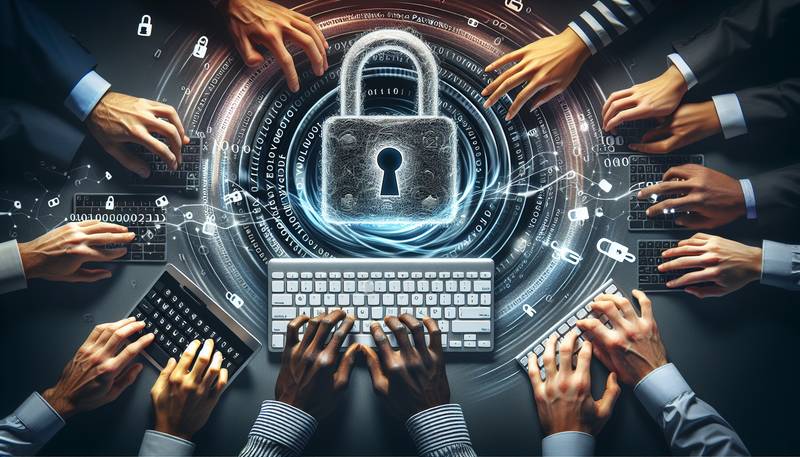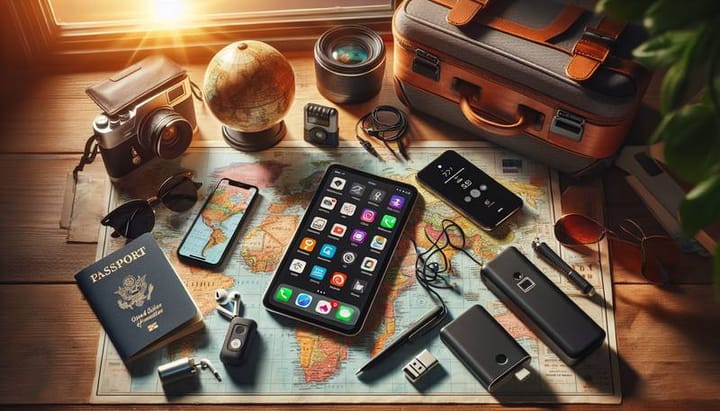Mastering Strong Passwords: Your Ultimate Guide

Welcome to our comprehensive guide on creating and remembering strong passwords! In today's virtual world where our personal and professional lives are increasingly intertwining with the digital sphere, protecting our online presence has never been more critical. A robust password serves as the first line of defense against cybercriminals eager to access your private information. But let's face it, coming up with a complex password and, more importantly, remembering it, can be as daunting as trying to recall the name of your third-grade teacher. Fear not, as we're about to make this process as painless as possible. By following our informative, yet engaging tips and tricks, you'll soon be a maestro in the art of password creation and retention. So, strap in and prepare yourself to give hackers a hard time cracking your online fortresses!
The Importance of a Strong Password
Think of your online accounts as houses in a neighborhood. A strong password is akin to a sturdy lock on your front door, keeping the bad guys out. Without it, you're just inviting trouble. Hackers employ various methods like brute force attacks, where they run through every possible combination to guess your password, or phishing scams designed to trick you into handing it over willingly. Your weak ‘password123’ is no match for their cunning. By strengthening your passwords, you're not just protecting access to your email or social media accounts, but you're safeguarding your financial information, personal data, and often, your identity. Consider a strong password the guardian of your digital life, the champion that stands between you and potential online chaos. It's a small step that can prevent a giant leap into unwanted territory.
The Recipe for a Password Fortress
Creating a strong password doesn't require a degree in rocket science, but it does need a sprinkle of creativity and a dash of strategy. Your password should be a minimum of 12 characters - the more extensive, the tougher it is to crack. Mix in uppercase letters with lowercase, throw in a generous helping of numbers and symbols, and you've got yourself the beginnings of a secure password. Avoid obvious substitutions like 'pa$$word' (hackers are onto those tricks!) and never use easily accessible information like birthdays or anniversaries. One trick is to think of a phrase or sentence and use the first letter of each word, mixing it up with numbers and symbols. For example, "I love 2 eat pizza on Fridays!" becomes "Il2epoF!" Now that's a password with some meat on it.
Tools of the Trade: Password Managers
Remembering a different password for each of your umpteen online accounts can feel like trying to remember every line from your favorite movie – it’s possible, but why strain yourself? That's where a password manager becomes your new best friend. These secure applications store all your passwords in one encrypted and password-protected vault. Not only do they remember your passwords for you, but the best ones can also generate random, hacker-proof passwords whenever you create a new account or update an old password. Plus, you only need to remember one master password to unlock them all. It’s like consolidating all your keys onto one super-secure keychain.
The Art of the Password Reset
Let's face it, even with all our mnemonic devices and memory tricks, the day may come when you forget your password. First, don't panic - it's as common as losing your car keys. Secondly, always opt for the "forgot my password" option over the easy route of just resetting to an old, weak password. When setting up your security questions, don't pick answers that are easily discoverable (like your mother's maiden name or your hometown). Instead, treat them like additional passwords – they don't even have to be real answers, as long as you can remember them. For example, what if your first pet was named Rover, but for the security question, you pick "TyrannosaurusRex123!"? No hacker is guessing that. And remember, not all sites require truthful answers, just consistent ones that you won't forget.
Multi-Factor Authentication: The Dynamic Duo
So, you've got a strong password. That's great! But why stop there? Let's add another thick layer of security armor to your accounts. Multi-Factor Authentication (MFA) is like adding a deadbolt to that sturdy lock we talked about earlier. MFA requires two or more proofs of identity to log in, which usually means something you know (your password) paired with something you have (a mobile device or security token) or something you are (biometric verification like a fingerprint or facial recognition). This dynamic duo ensures that even if a hacker manages to get their grubby fingers on your password, they would still need the second 'factor' to breach your account. It's the buddy system at its finest—and in cybersecurity, it’s always good to have a buddy watching your back.
Password Etiquette: Do's and Don'ts
Now that you're on your way to becoming a password guru, let's talk about some cardinal rules. DO change your passwords regularly, at least every three months. DON'T use the same password across multiple sites; if a hacker cracks one, they'll have a field day accessing all your accounts. DO consider using phrases or sentences that are meaningful to you but appear as a jumble of characters to anyone else. DON'T write down your passwords on Post-it notes around your desk (yes, we've seen it done!). If you must write them down, keep them in a secure place—and never on or near your computer. Finally, DO be mindful of phishing scams and never enter your password after following a link from an email or social media message. It's like not taking candy from strangers, but for the digital age.
In Conclusion: Stay Safe Online
There you have it—our extended play on creating and remembering strong passwords. While it might seem like a lot to take in, each step brings you closer to protecting your private information from unwanted guests. Passwords are the gatekeepers to your digital world, and the more complex and well-maintained they are, the safer you'll be. So embrace these practices like you would a healthy lifestyle. Remember, creating a strong password doesn't just give you peace of mind; it puts you in control. Proactively manage your passwords and authentication; treat them like the valuable assets they are. Because ultimately, your online security is in your hands—make sure it's fortified, robust, and impenetrable. Now go forth, and may your passwords be as strong as your will to keep cyber intruders at bay!


